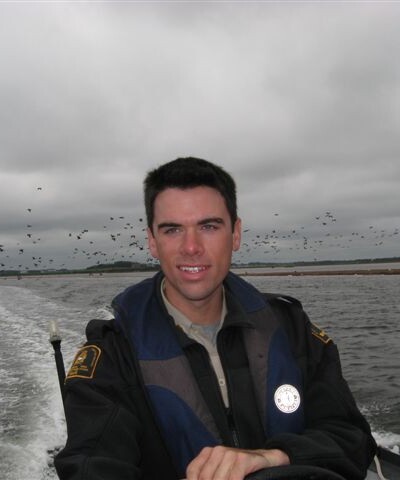Our Volunteers

Ottis McInnis
Meet Ottis McInnis, a member of our Prince Edward Island Advisory Committee
Meet Ottis McInnis, a member of the Prince Edward Island Advisory Committee
McInnis has always had an interest in the outdoors, wildlife and fishing. You could say it’s in his blood – his parents were also involved in commercial fisheries and aquaculture on Price Edward Island.
Through a summer position with PEI’s watershed program, McInnis became aware of the work being done by the Central Queens branch of the PEI Wildlife Federation and began working with them. After he earned a diploma in resource management technology at Holland College, a friend who had become a fisheries officer with the Department of Fisheries and Oceans suggested he would be a great fit with the department.
“That was 15 years ago, I’ve been a fisheries officer ever since in Charlottetown, PEI,” said McInnis. “For the first 14 years I was in the field directly enforcing, but for the last year I’ve been acting in a different capacity. I’m still in conservation protection but more of an administrative role around our fisheries aerial surveillance and enforcement program.”
Through his work with the PEI Wildlife Federation, McInnis participated in a variety of organizing fundraisers over the years which led to him connecting with Chris Mills, a then-FCAS board member.
“He knew that I had some involvement with watersheds and salmon, as well as a personal interest as an angler. His term with the FCAS board was up so he asked if I’d be interested in taking over his seat and that’s how I ended up there in 2016.”
McInnis’ role with the FCAS has been with the grant application process – evaluating applications and providing feedback on the proposed projects. With his long history in watershed operations and fisheries, he is always happy to share his perspective wherever it can benefit applicants.
“Just being part of a group that’s responsible for ensuring that the funds themselves are going to worthy causes and are going to actually make a tangible difference for Atlantic salmon is really rewarding.”
McInnis takes a great deal of pride in his work with the FCAS, noting how crucial the funding is and how much important work would not get done without it. The volunteers and not-for-profits who apply to the FCAS are the only ones doing this work, which allows recreational users to more fully enjoy the watersheds.
“It’s kind of a cycle – that maintained involvement by recreational user groups means there’s extra attention on the systems and they can raise alarms if they see something that doesn’t look right. And that can trigger additional work by the watershed groups which results in requests to groups like FCAS for funding.”
“It’s an important cog in the wheel of how these systems stay healthy,” he added.
